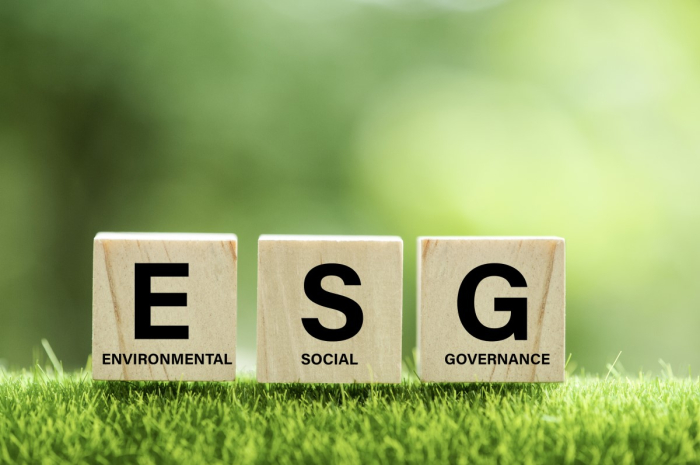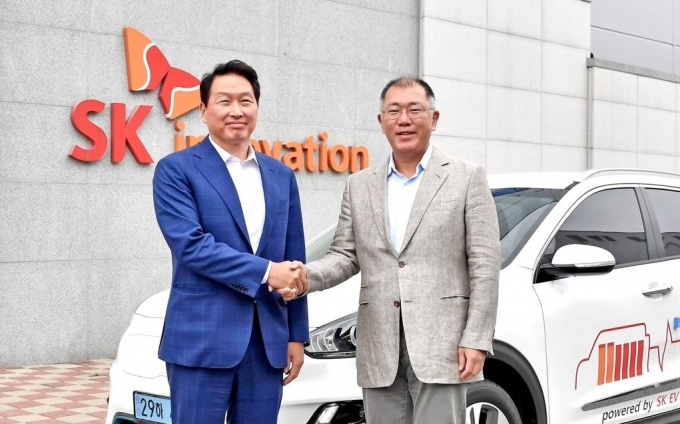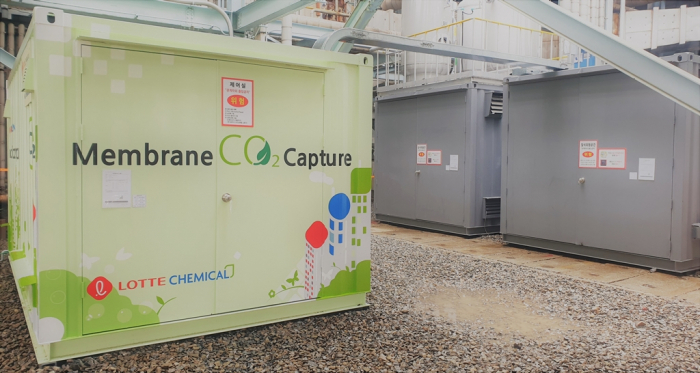ESG
Korean conglomerates' ESG investment nears $100 bn
Companies are pushing to go green ahead of 2030, the interim target to reach net-zero carbon emissions
By Aug 24, 2021 (Gmt+09:00)
3
Min read
Most Read
Samsung shifts to emergency mode with 6-day work week for executives


Alibaba eyes 1st investment in Korean e-commerce platform


Blackstone signs over $1 bn deal with MBK for 1st exit in Korea


NPS loses $1.2 bn in local stocks in Q1 on weak battery shares


MBK eyes stake in Korean software developer Tmaxsoft



South Korea's top 10 conglomerates are rushing to foster eco-friendly businesses models with their investments into environment, social and governance (ESG) initiatives already exceeding 115 trillion won ($98.5 billion), according to The Federation of Korean Industries (FKI) on Aug. 23.
Korean conglomerates' strong push to ramp up ESG investment is driven by the fact that it will be hard to survive in the ESG era with their existing businesses, which account for a substantial amount of carbon emissions.
For such reasons, most of the companies are investing in low carbon-related businesses including the hydrogen economy, renewable energy and eco-friendly materials as they aim to achieve tangible results ahead of 2030, the interim target year for reaching net-zero carbon emissions globally by 2050, as designated by the United Nations.
Among Korean business groups, SK Group accounted for the largest amount of ESG investments including SK Innovation Co.'s 30 trillion won investment in eco-friendly businesses and the construction of a battery plant in the US.
LG Group announced its 17.6 trillion won investment roadmap including LG Chem Ltd.'s plan to inject 10 trillion won in batteries and plastic waste recycling alongside an additional 2.6 trillion won to develop eco-friendly materials.
Hyundai Motor Group has also announced that it will be investing around 15 trillion won in eco-friendly infrastructure such as hydrogen car facilities.
The financial circle expects to see at least 200 trillion won worth of ESG investments carried out by 2030 when allowing for other business groups that have yet to confirm their investment target and volume. For example, Samsung Electronics Co., which annually invests over 40 trillion won in its facilities, has yet to disclose its ESG investment plans.
FOSTERING NEW ESG GROWTH DRIVERS
Earlier in March, KoreaŌĆÖs five major conglomerates, Hyundai Motor Group, SK Group, POSCO, Hanwha Group and Hyosung Group, announced plans to invest 43 trillion won in the hydrogen economy by 2030 in a move to foster ESG-related businesses.

SK will invest 18.5 trillion won to build liquid hydrogen production plants and fuel cell power plants and Hyundai Motor will commit 11.1 trillion won to hydrogen car facilities and charging stations.
Battery companies have been taking the lead in renewable energy investments: LG Energy Solution Ltd. and SK Innovation are both building new battery plants in the US.
Also, Samsung C&T Corp. has injected 750 billion won to build a 700-megawatt (MW) solar power plant in Texas while GS Engineering & Construction Corp. has announced plans to invest 500 billion won in green energy by 2028.
Low-carbon technology development is another key investment area. Korea's leading city gas supplier SK E&S Co. has decided to invest in carbon capture, utilization and storage (CCUS) technology while Hanwha Solutions Corp. is set to invest in home production of carbon-neutral materials.
Also, Lotte Chemical Corp. will be investing 4.4 trillion won in hydrogen projects by 2030, in a departure from its mainstay petrochemicals. It is set to invest around 100 billion won in the construction of plastic recycling facilities by 2024.┬Ā

PREPARING FOR INTERIM TARGET 2030
Most of the companies are aiming to complete their mid-to-long term business transitions and ESG investments by the interim target year of 2030 given the UN's goal to achieve global carbon neutrality by 2050.
During the 2018 Intergovernmental Panel on Climate Change (IPCC) conference, the South Korean government pledged to reduce carbon emissions by 45% in 2030 compared to 2010.
But some sectors will now be pressed even further, as the European Commission recently announced its ŌĆ£Fit for 55ŌĆØ initiative, which aims to cut greenhouse emissions by 55% by 2030. It also states that imported products with higher carbon emissions than products made in the EU region will be levied with additional taxes, starting with the steel, cement and aluminum segments.
The automobile industry will also need to finish transforming its business models as US President Joe Biden recently signed an executive order requesting that half the cars sold in the US be zero-emission vehicles (ZEVs) by 2030, meaning that automobile companies focusing on gasoline and diesel cars will not be able to penetrate the world's largest automobile market.
Write to Hyung-suk Song at click@hankyung.com
Danbee Lee edited this article.
More to Read
-
 Battery recyclingBattery recycling: Carmakers, battery companies in new turf war
Battery recyclingBattery recycling: Carmakers, battery companies in new turf warAug 16, 2021 (Gmt+09:00)
4 Min read -
 Renewable energyLG Chem to power China battery plants with 100% renewable energy
Renewable energyLG Chem to power China battery plants with 100% renewable energyAug 10, 2021 (Gmt+09:00)
2 Min read -
 Electric vehiclesGlobal carmakers to speed up EV push as governments pressure harder
Electric vehiclesGlobal carmakers to speed up EV push as governments pressure harderAug 06, 2021 (Gmt+09:00)
4 Min read -
 Carbon neutralityPOSCO partners with AustraliaŌĆÖs Roy Hill for carbon neutrality initiatives
Carbon neutralityPOSCO partners with AustraliaŌĆÖs Roy Hill for carbon neutrality initiativesAug 02, 2021 (Gmt+09:00)
2 Min read -

Comment 0
LOG IN


